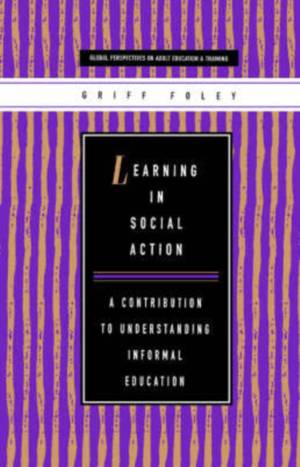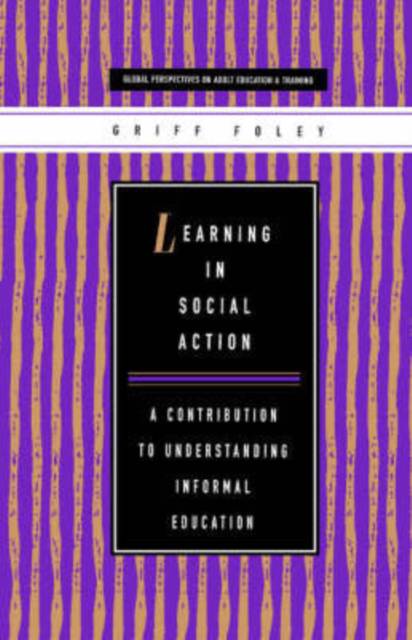
Bedankt voor het vertrouwen het afgelopen jaar! Om jou te bedanken bieden we GRATIS verzending (in België) aan op alles gedurende de hele maand januari.
- Afhalen na 1 uur in een winkel met voorraad
- In januari gratis thuislevering in België
- Ruim aanbod met 7 miljoen producten
Bedankt voor het vertrouwen het afgelopen jaar! Om jou te bedanken bieden we GRATIS verzending (in België) aan op alles gedurende de hele maand januari.
- Afhalen na 1 uur in een winkel met voorraad
- In januari gratis thuislevering in België
- Ruim aanbod met 7 miljoen producten
Zoeken
€ 195,45
+ 390 punten
Omschrijving
This book seeks to increase our understanding of those non-educational contexts and informal circumstances in which people learn. Adult educators, Professor Foley argues, ought not to neglect the importance of the incidental learning which can take place, in particular, when people become involved in voluntary organisations, social struggles, and political activity of every kind. In developing the argument that such involvement can provide extraordinarily powerful learning opportunities, he uses case studies from the United States of America, Australia as well as Third World countries - Brazil and Zimbabwe - and embracing very diverse environmental, women's, worker and political struggles. He is particularly interested in how involvement in social action can help people to unlearn dominant, oppressive ideologies and discourses and learn instead oppositional, liberatory ones, even if such processes of emancipatory learning are inevitably complex and contradictory. He relates these processes of informal learning in contested contexts to current thinking in adult education and points the way to a somewhat different, and more radical, agenda in adult education theory and practice. For adult educators, community workers and others working with socially engaged citizens, the insights and lessons of this book ought to be especially useful as they try to develop their own practice in such contexts.
Specificaties
Betrokkenen
- Auteur(s):
- Uitgeverij:
Inhoud
- Aantal bladzijden:
- 176
- Taal:
- Engels
- Reeks:
Eigenschappen
- Productcode (EAN):
- 9781856496834
- Verschijningsdatum:
- 1/05/1999
- Uitvoering:
- Hardcover
- Formaat:
- Genaaid
- Afmetingen:
- 143 mm x 224 mm
- Gewicht:
- 290 g

Alleen bij Standaard Boekhandel
+ 390 punten op je klantenkaart van Standaard Boekhandel
Beoordelingen
We publiceren alleen reviews die voldoen aan de voorwaarden voor reviews. Bekijk onze voorwaarden voor reviews.









